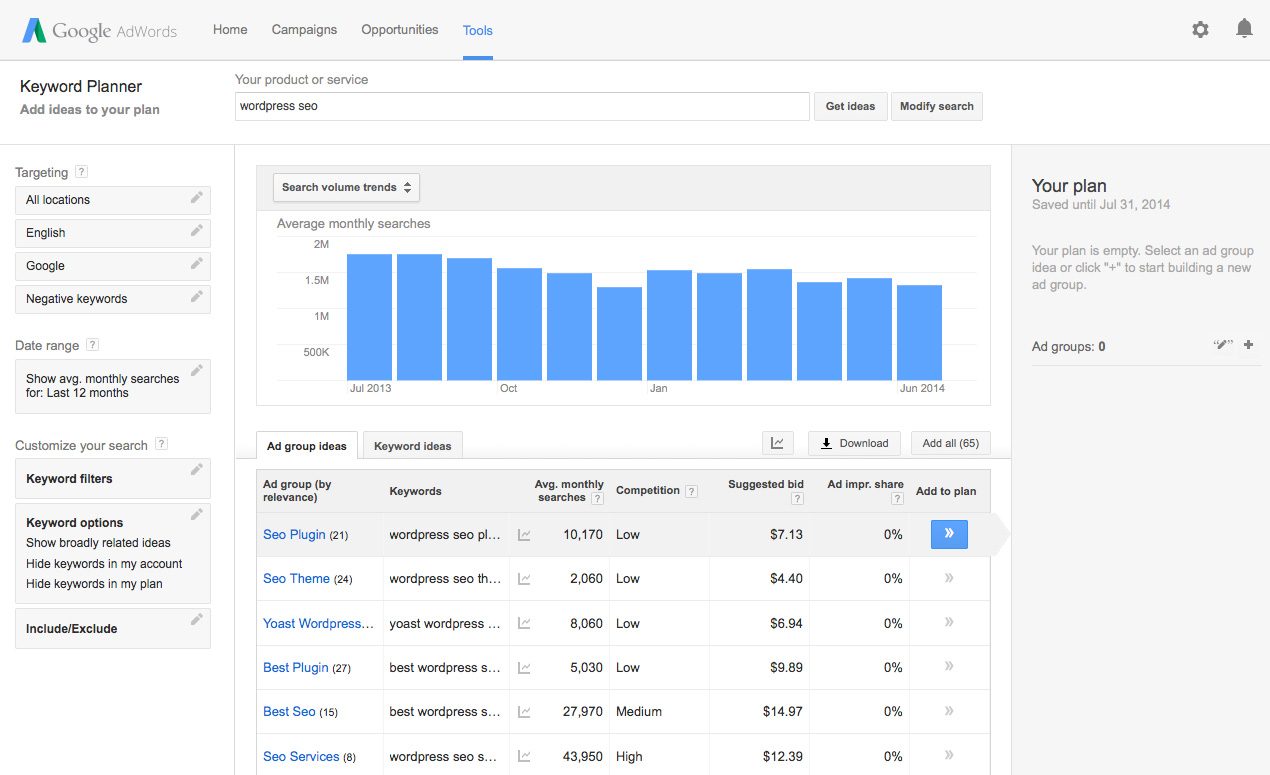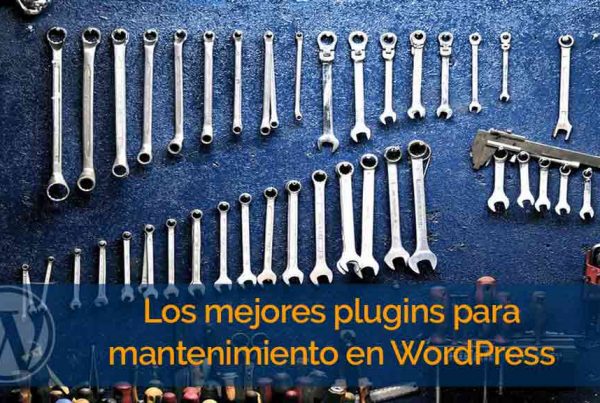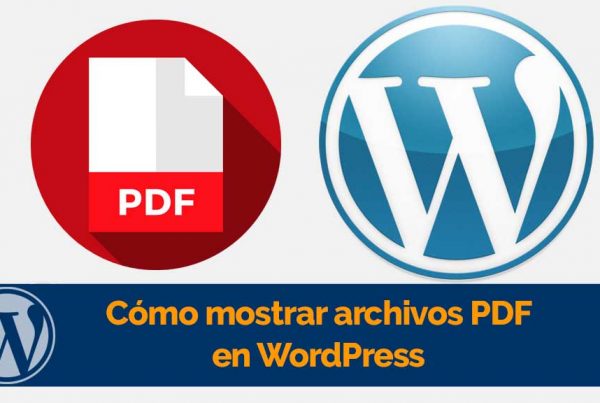- 1. Today reading: Beginner's Guide to SEO for WordPress: Introduction, Preparation, and Lingo
- 2. Researching and Using WordPress Keywords for SEO
- 3. Improve SEO with backlinks, site speed, and more
In this concise guide, you'll learn how to get the most out of your WordPress site and take advantage of the visitors you've been leaving on the table. In this part, you will be introduced to SEO and show you some steps to take to prepare for future work. If you have trouble understanding any terms or jargon, see the section "Deciphering the jargon."
What is SEO and why should you spend time on it?
If you don't know, SEO stands for search engine optimization, and it's simply the discipline of getting search engines, usually with a heavy Google search focus, to send you visitors.
SEO is complicated and it can be difficult to clarify all that is involved without delay, so we will keep it short and concise. The simplest way to clarify SEO is to say that it is about communication. On the one hand, knowing your potential audience and communicating with them in their language, on the other hand, communicating to search engines that your amazing content deserves the attention and reverence of their bots.
SEO is usually done to sound like some kind of mystical, magical endeavor. A journey through murky seas that only 'gurus' and experts can navigate (or play with the results 'fooling the system'). And when it comes to getting into the top 10 Google search results for the most competitive terms and maintaining your rank, perhaps this is true.
But that's not what this WordPress SEO guide is about. This guide will show you some of the best practices that can start to drive small but significant search traffic that will accumulate over time.
When it comes to whether or not you should spend time on SEO as a beginner, the blogging community seems to be split down the middle. SEO bloggers "can't underestimate the importance of SEO," while Social Media, Networking, whatever, ignore it.
While I've seen some compelling statistics that show guest blogging traffic converts better than search traffic, the potential volume is also quite different. Although guest posts can attract a few thousand visitors, even hundreds, the potential lifetime traffic of getting a ranking from a single post is of a different scope. Even for some 'miserable' search term that only gets 30 searches a day, that's hundreds of potential visitors per year (and definitely no cold email / networking needed). So let's dive into WordPress SEO!
I thought WordPress was already SEO optimized?
Well, yes… and no. The correct structure is an important part of SEO, and WordPress has many key structures that make your content more attractive to search engines. With additional plugins, for example WordPress SEO by Yoast, you can check many boxes with almost no effort. But there are some things that need to be done, at least for now, more or less manually. How to get the most out of your images and make sure your web portal loads as fast as possible. Or use heading tags correctly when writing content. And make sure your content is truly useful and you get a share or three and a backlink or two.
But none of this matters if no one is looking for what you are writing about in the same way that you are writing about it.
Although Google has made some progress when it comes to recognizing user-friendly content, even when search terms don't exactly match keyword usage, there is still no real substitute for keyword research. Since no matter how optimized your page is, if no one is looking for what you are writing, there is no one to find it, even if you are at the top. (This way, don't be proud to rank first for the exact match keyword for your web portal name. While it can be useful in helping previous visitors return to your site, it is very little. likely to get new eyes.)
Keyword research
If you think about how a search engine works, crawling and indexing its pages and its content, and then comparing it with the requests made by search engines, you can get an idea of what it is all about. Search engine optimization, in a sense, is about communicating effectively with a potential audience. you have to know how to communicate with the audience.
And that's where keyword research comes in. Keyword research is all about speaking the language of the potential visitor. Slightly different wording can mean a 1000% difference to your potential audience. Sometimes more (but that doesn't mean you should always target the most popular, more on that later).
Although there is a great deal of software for doing keyword research, for the purposes of this guide, we will use the free alternative of Google keyword planner (You will need an active AdWords account to use it, which is pretty straightforward if you already have a Google account - it's free.)
One of my favorite features of the keyword planner is that you can use it to get suggestions and insight into the language your audience uses when searching for content, basically writing a broader topic or problem.
The second part of keyword research is examining the competition. This is key, as it will help you choose whether or not your time trying to go after a specific keyword is important, or basically you should save it for later and move on to greener pastures.
SEO best practices according to Google
Google discourages "artificial link building," including guest blogging to create backlinks. Instead, Google advises you to:
- Optimize the structure of your web portal
- Write accurate page titles
- Improve your web portal URLs
- Use meta descriptions correctly
- Write amazing content or offer amazing services
- Use header tags correctly
- Optimize your images
Preparation
And now in the real doing. The following things will help you prepare your web portal to put into practice the best SEO practices that we will cover in the next part of the tutorial.
Step # 1 Make sure you allow search engines to index you.
LEAVE THIS BOX UNMARKED! It doesn't matter how well you do all the other things, if you mess up this step, it won't matter at all. Your site will tell googlebots, bingbots, and yahoobots that you are "not welcome here." And they will move on, effectively making you invisible on most (if not all) search engines.
Step # 2 Install an SEO plugin that picks up where WordPress left off.
One of the most used and recommended plugins, and the one we use here is WP Explorer, it is WordPress SEO by Yoast (you will learn how to use it later, in detail, therefore there is nothing to worry about).
Step 3: index your site if it isn't already
To be indexed by Google, you will need an already indexed web portal to link to your web portal, or you will need to index it manually. You can do this by submitting your sitemap (easily created using a plugin like WordPress SEO by Yoast, or XML sitemaps) using Google Webmaster Tools (to get indexed in using Bing Bing Webmaster Tools to submit your sitemap). More in create an XML sitemap and sending it here.
Step # 4 Leave ugly permanent links behind
The default structure (p = 999) is not only bad for appearance, but it also indirectly damages your ranking, because having keywords in your page URL helps a bit. It is also such a simple solution. Basically go to settings> permanent links and choose the link structure «publication name», and you are good to go.
Deciphering the lingo
This is where we try to decipher some of the jargon that is usually used when talking about SEO. If you have a definition, wondering what it means, feel free to leave a comment!
- Search volume = the number of searches a specific keyword receives per month.
- Keyword = Most of the time it refers to a word or phrase searched in, in the context of putting it in your content.
- Search phrase = something someone searches in search engines.
- Exact match keyword = Keyword that is the exact match to a search phrase ("Organic cat food" is an exact match, but "Natural cat food" is not).
- Backlink = A link from an external web portal to a web portal or page.
- Permalink = The full URL of a post (or page). Simply, where you find a post when it is no longer on the main page.
In this concise guide, you will learn how to get the most out of your WordPress site and get additional visitors that you could leave on the table.
conclusion
You are off to a good start and are on your way to better understanding and putting into practice good WordPress SEO practices. Hopefully now you have an idea of where to start with SEO for your site. In my next post, we'll take a look at keywords, their importance, and how to select the best ones for your WordPress site, so stay tuned! And if you have something to add, basically leave a comment below. We'd love to hear what you have to say about preparing for SEO.









